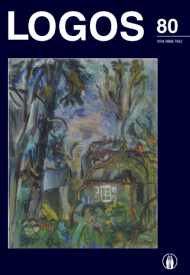Užgavėnės Panevėžyje Ir Jose Konstruojamos Tapatybės
Mardi Gras in Panevėžys and the Identities Constructed in the Festival
Author(s): Eglė AleknaitėSubject(s): Customs / Folklore, Social history, Sociology of Culture, Identity of Collectives
Published by: Visuomeninė organizacija »LOGOS«
Keywords: Mardi Gras; seasonal festivals; revival of folk culture; cultural identities;
Summary/Abstract: The aim of the article is to analyse the identity constructed in revived Mardi Gras (and other related festivals) using the case of festivals celebrated in Panevėžys. On the basis of archival data, newspaper publications and interviews with organizers and participants, the history of these festivals in Panevėžys is reviewed and the identity of community that unfolds in these festivals is analysed. The analysis reveals that Mardi Gras and related festivals have been organized since the end of the 1950’s in Panevėžys. In Soviet times these events were related with the old customs of Lithuania and the region of Panevėžys, as well as with sport and all-Soviet Union culture. In the beginning of the 21st century the organizers of the town festival aimed to foster regional identity (i. e. identity of Upper Lithuania, Aukštaitija). The most emphasised Upper Lithuanian aspect in the festival is a variant of a jackstraw used; in this case it is Upper Lithuanian Gavėnas. However, it seems that the most popular opinion still is that Mardi Gras is an all-Lithuanian festival, which helps to foster national identity.
Journal: LOGOS - A Journal of Religion, Philosophy, Comparative Cultural Studies and Art
- Issue Year: 2014
- Issue No: 80
- Page Range: 143-152
- Page Count: 10
- Language: Lithuanian

